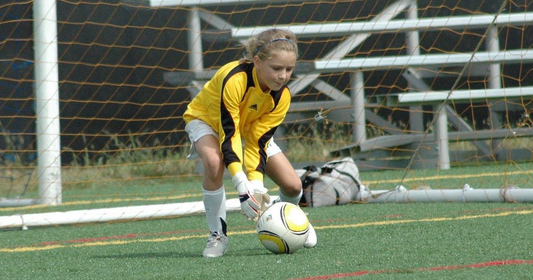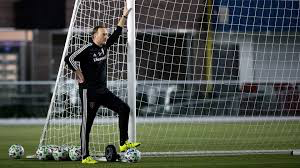As goalkeepers, we are under a lot of stress and expectation from our teammates and coaches. The smallest mistake can lead to a goal and easily ruin your entire game. We have to be able to handle the pressure that comes with our position and use our mind to perform at our best. Psychological training should be a vital part of your training routine to be able to deal with the pressures that come with goalkeeping. Meditation and yoga are becoming more prevelant in soccer, so you should consider adding them to your training routine.
Goalkeeper Psychology
How To Encourage More Players To Be A Keeper
Encouraging more players to join the rotation of goalkeeper boils down to support. Athletes respond and react to non - verbal and verbal feedback. It is equally important to not only to be encouraging but also reflect that in your body language. Coaches, parents, and players alike have to participate in positive feedback not just offer criticism. More players will want to volunteer in goal if they felt like they would have fun and succeed. On top of speaking with parents about positive feedback coaches have to teach the art of goalkeeping in a fun and challenging environment. In my experience as a team and goalkeeper coach, I have noticed the parents of goalkeepers tend to move away from other parents and are less vocal compared to the parents of field players. Goalkeeper parents tend to be observers of their keepers performance as well as other parents’ reactions. This is due to a few factors: nervousness for the their keeper and other parents criticism. Parents are brutal a times forgetting that no professional athlete is perfect let alone a youth soccer player. The goalkeeper needs to see all parents including their own cheering for every player and action; applauding not only for the diving save but every punt, kick, and catch. Find something good to cheer about. Reassurance will help build confidence in your developing keeper and athlete. During games display a calm demeanor, refrain from derogatory and critical remarks towards players and officials, and applaud the simplest of accomplishments. As parents and coaches we have to teach our young athletes about sportsmanship and fun competition. During every opportunity we must reinforce that this is a game and it is fun. If the game of soccer is seen as a learning opportunity and a chance to enjoy fun competition with their friends the whole atmosphere will be more relaxed. I remember being so nervous in goal when I first started playing. I was worried about making a mistake or letting my team down constantly. Having to worry about making a mistake consumes a player inevitably allowing a mistake to occur because of nerves and self - imposed pressure. There should be zero tolerance within your team and on your sidelines for derogatory comments. Drive this home early to your players and parents. Finding a way to help your players and potential keepers experience success during practice will also help build confidence in games. If more players see the goal as a fun challenging opportunity more will want to take a turn. Giving your parents a list of positive statements and different ways to say “good job” to the keeper and all players is way to promote an encouraging environment. The positive statements are endless: nice save, good deflection, wow what a punt. If the keeper comes out of net to challenge a player, “ way to challenge the shooter”. If a goal is scored: “ You were close, You’ll get a hand on it next time, It was a good shot, not your fault, pick you head up and you’ll get the next one”. After the game have you team find the keeper and congratulate them first. Help take the pressure off the player in net with your words and actions. Celebrate the players are having fun and learning. Set a good example for your players and parents by being positive and encouraging. Positive feedback will build confidence in your keeper to make decisions, which will aide in their learning process.
From a team development standpoint youth coaches should dedicate at least one practice to goalkeeping. Teach every player at U8 to catch, the ready position, and distribution. This will help identify potential goalkeepers to rotate in and out. A majority of the players will love this fun session since most young athletes enjoy diving all over the place and being dramatic with the game winning save. Having balls kicked and thrown at the keepers will help players develop a sense what it feels like physically and emotionally protecting the goal, being the last defender, or first attacker. Having a foundation or the basic skills to succeed will help build confidence. A swimming instructor would not throw a student in the deep end if he didn't know how to swim.?
Parents and Coaches alike should reward their player for being brave and protecting the goal. Reassure the keeper that mistakes are learning opportunities. The best professional keepers make mistakes. Even watch a keeper bloopers DVD with the team as well as great saves. Simply help them understand there will be shots that can not be saved since the goal is really big compared to the keeper and there are a lot of people trying to score. Christian Benjamin, owner of keeperstop.com. USSF and NSCAA licenses coach specializing in goalkeeper education. Goalkeeper coach and clinician for college, ODP, high school, premiere travel, and recreational keepers and coaches.
Goalkeepers Training At Their Best
By Todd Hoffard, www.ONEonONEsoccer.com
The ultimate goal of any young player is to play for his/her national team and represent their country. But, what gets us there? What are the national team programs looking for in players and what do I need to do to be noticed? Yes, obviously I must be technically gifted and understand the game tactically, but where does this ability stem from? How do I get from the U6 player to the player on the U16 National Team or Regional ODP Team for example? Well, the amount and quality of training/competition that is done from the days of the U6 player to the older ages is what are the keys to a good player.
To be the best soccer player and achieve a lot of success in the game you need a couple different elements. First and foremost, you need to have the proper ATTITUDE. You must really ask yourself, do I really want this? What are the goals of the player? If getting to the national team levels are the goal, then there is a particular attitude that is required. Players that truly love the game and have lofty goals are the players that do not needthe motivation to work hard. Typically those players are constantly searching for situations where they can put themselves into the fire. Challenging themselves daily and having the inner power and desire to play just for the pure love of the game. It is that internal motivation that you truly want to be the best player that you can be because you absolutely love it! A strong attitude for the game will also lead you down the path of doing whatever it takes to succeed on the field and doing your job well.
Second, you must have a strong COMMITMENT to succeed. This means that you must dedicate yourself to daily training at the highest level you can find. The Tuesday, Thursday training and game on Saturday approach will NOT get you to the higher levels of the game by any stretch. It must be a daily commitment on your part to put yourself in a situation where you are receiving quality training and competitive matches. Most times as the young player though this is not just a commitment of the individual but to the parents and family as well. It might take Mom or Dad driving you several hours to and from training and matches on a regular basis to give you the best opportunity to grow as a player. If this is the case, then so be it if you truly want to be the best. If you really want something bad enough you will need to fight and battle for it, it just won't happen because you want it to happen.
Third, you must SACRIFICE certain things. You will need to eat, live and breathe the game in order to be the best. This might mean being away from family/friends due to traveling with a team for training/matches or not being able to do certain things in general due to your commitment to your goals as a player. This is often the most difficult element to all of this because it really tests your commitment level and attitude. Am I willing to sacrifice not going to the school dance on Friday due to a tournament this weekend? Am I committed enough to my development to sacrifice going to the dance because I really love playing the game that much? These are the questions that you will need to ask yourself all the time in order to become the player that you desire to be.
The combination of all three of these elements is what typically creates a national team level player. Along with these three elements, the game today also places several demands on players. Whether it is at the international or recreational levels, the game today is all about SPEED! How quickly can you solve problems on the playing field and adapt or adjust to the situation. The game not only demands physical speed but technical speed as well. How quickly can you get the ball under control, make a decision and do something positive with it? This is the technical speed that is needed as well as the physical speed which is how fast can you get from point A to point B.
Can you be lacking in one area of the game and still play at a high level? Yes, you certainly can and an excellent example of that is Frankie Heyduk. To watch Frankie in a technical training session you might think, this guy lacks the polish of his teammates with the ball at his feet, but, at the World Cup in 2002 we could not afford to NOT have him on the field because of the other elements that he brought to the game. He is so committed to doing his job and is willing to sacrifice himself for the better of the team. His pure speed, athleticism and work ethic was something that makes up for his lack of pure technical ability. And because of that he was one of our better performers last summer. So, you don't necessarily need the pure technical skills, but you will need to make up for it somehow.
Do you feel that you possess these different qualities and are getting overlooked at the club or ODP levels? If this is the case, take it upon yourself and find out what else you need to do to get you where you want to be. Ask your club coaches, ODP coaches or the staff at ONE on ONE Soccerâ for help in getting noticed. If you have what it takes the ODP and national team programs will find you! Just do your part and play in situations that you keep asking yourself, what do I need to do to survive at this level?--------------------------------------------ONE on ONE Soccer Goalkeeper School (National) - www.ONEonONEsoccer.com, National Director - Todd Hoffard The Goalkeeper School is by far the most technical environment you can find in the nation. We are the only staff that is made up entirely by Division I college coaches, regional/national team coaches and or professional goalkeepers. Also, we monitor our goalkeepers for the entire year to follow their development.

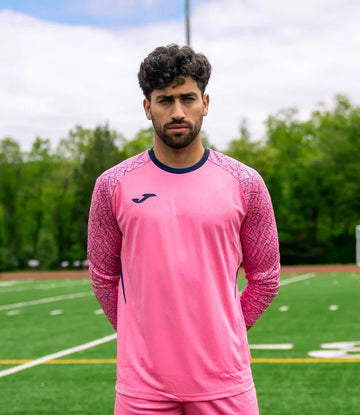
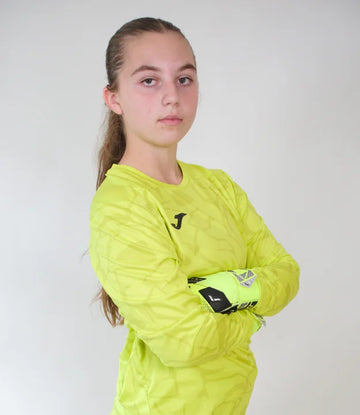
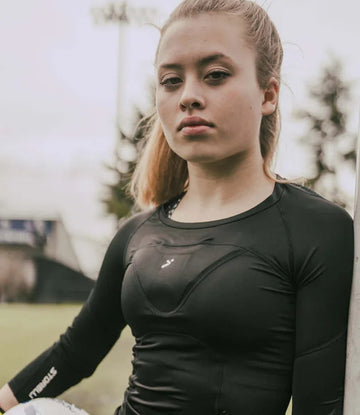
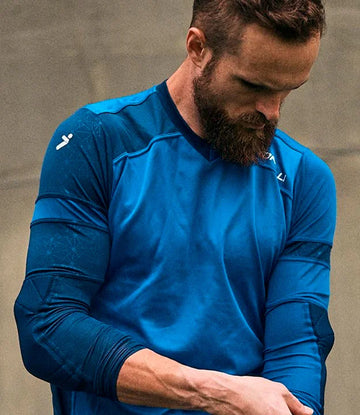
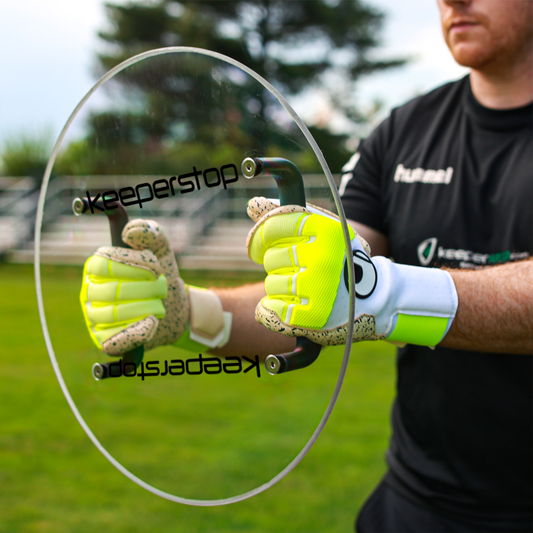
 Gloves
Gloves
 Jerseys
Jerseys
 Gear
Gear
 Brands
Brands
